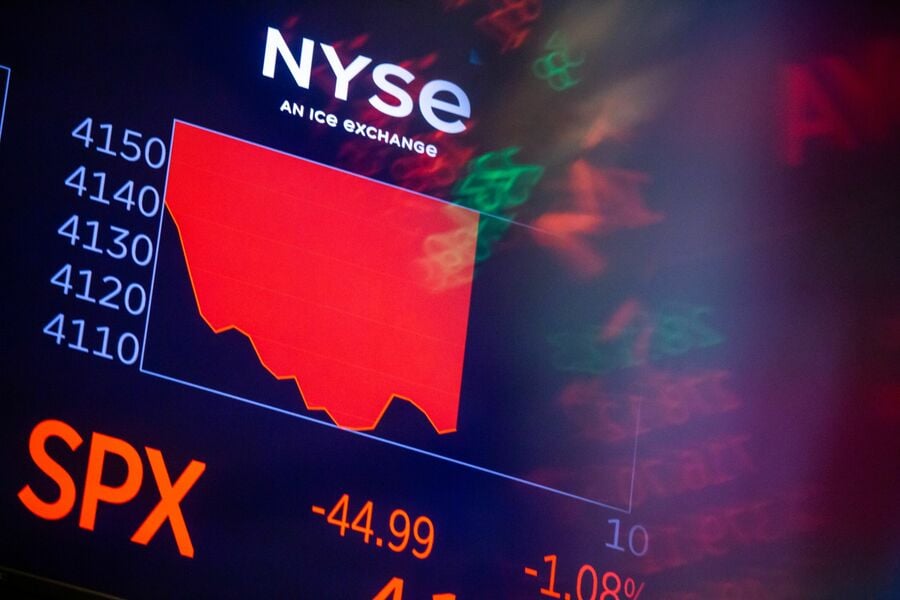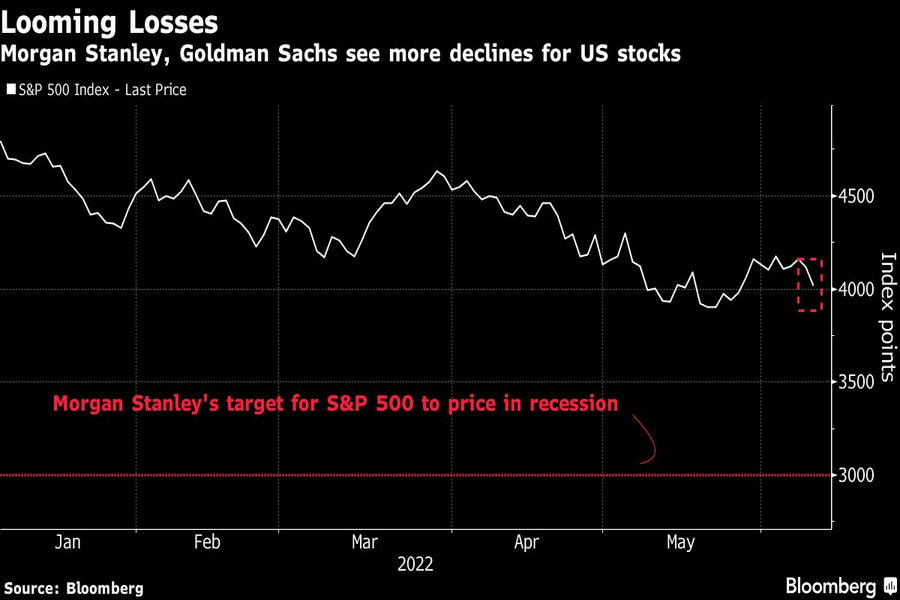

U.S. stocks are staging a furious rally on Tuesday but top strategists at Societe Generale SA and Goldman Sachs Group Inc. warn of more declines ahead as equities have yet to fully price in the risk of a recession.
The technology-heavy Nasdaq 100 and the S&P 500 each surged more than 2.6% on Tuesday following a sharp rout last week that sent the U.S. benchmark index into a bear market. While the sell-off is luring investors chasing cheaper valuations, SocGen’s Manish Kabra says a “typical” recession will see the S&P 500 Index falling to 3,200 points — nearly 13% below its Friday close before the holiday.
And a 1970’s-style inflation shock could send the index crashing about 30% from current levels amid stagnation with higher inflation, the strategist wrote in a note. The key read-across from the 1970s is when investors start to believe that inflation will stay high for longer, equity markets begin to focus on real instead of nominal earnings-per-share rate, which for this year is likely to be negative, SocGen said.
“We have still not seen the true bottom for equities yet,” Kabra said.
His counterpart Michael J. Wilson at Morgan Stanley, one of Wall Street’s most vocal bears and who correctly predicted the latest market sell-off, agrees that the S&P 500 needs to drop another 15% to 20% to about 3,000 points for the market to fully reflect the scale of economic contraction.
“The bear market will not be over until recession arrives or the risk of one is extinguished,” the Morgan Stanley team said.

The calls from Wall Street’s top strategists underline how investor sentiment on risk assets has soured in recent weeks as runaway inflation and a hawkish Federal Reserve raised the specter of a prolonged economic contraction. Wilson said that should a full-blown recession become the market’s base case, the S&P 500 could bottom near to 2,900 index points — more than 21% below its last close.
Over at Goldman Sachs, strategists led by Peter Oppenheimer said stocks were only pricing in a mild recession, “leaving them exposed to a further deterioration in expectations.” The team said they view the current bear market as cyclical, with stronger private sector balance sheets and negative real interest rates cushioning against systemic risks associated with structural bear markets.
Berenberg strategists also said on Tuesday it was too early to call a bottom for equities with earnings downgrades just beginning amid expectations of a recession.

New joint research by T. Rowe Price, MIT, and Stanford University finds more diverse asset allocations among older participants.

With its asset pipeline bursting past $13 billion, Farther is looking to build more momentum with three new managing directors.

A Department of Labor proposal to scrap a regulatory provision under ERISA could create uncertainty for fiduciaries, the trade association argues.

"We continue to feel confident about our ability to capture 90%," LPL CEO Rich Steinmeier told analysts during the firm's 2nd quarter earnings call.

It's the mega-RIA firm's third $1B+ acquisition in just three months.
Orion's Tom Wilson on delivering coordinated, high-touch service in a world where returns alone no longer set you apart.
Barely a decade old, registered index-linked annuities have quickly surged in popularity, thanks to their unique blend of protection and growth potential—an appealing option for investors looking to chart a steadier course through today's choppy market waters, says Myles Lambert, Brighthouse Financial.
